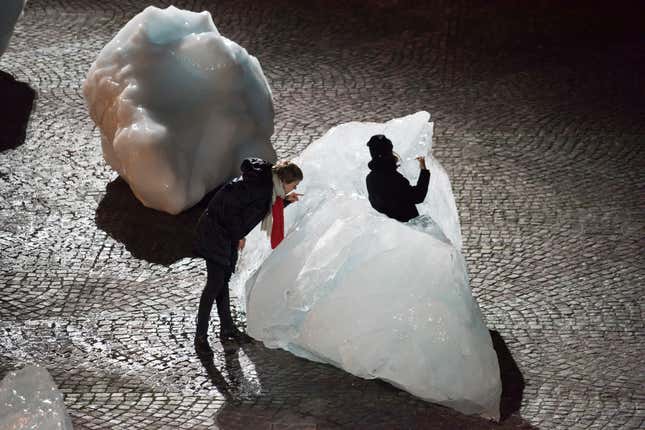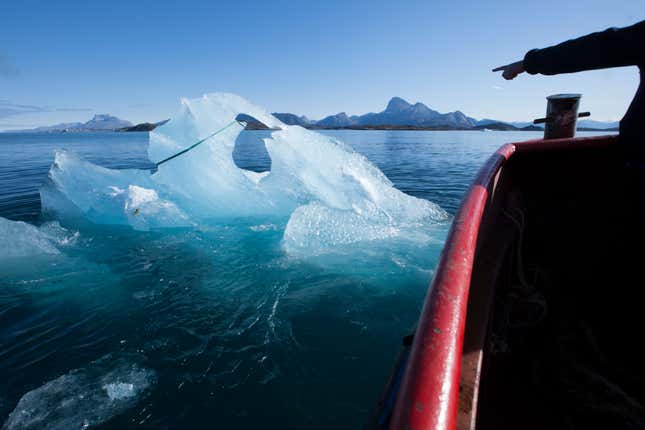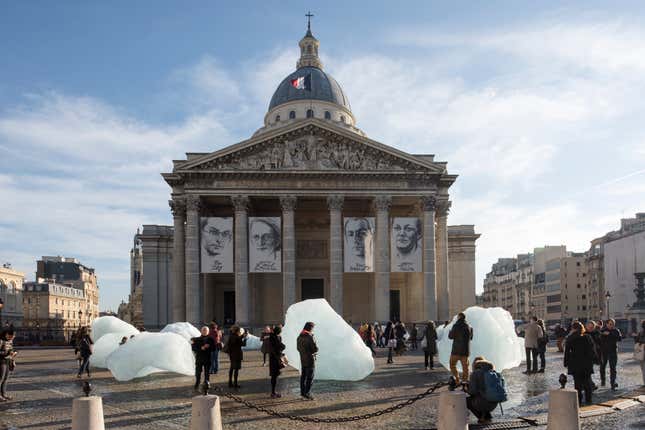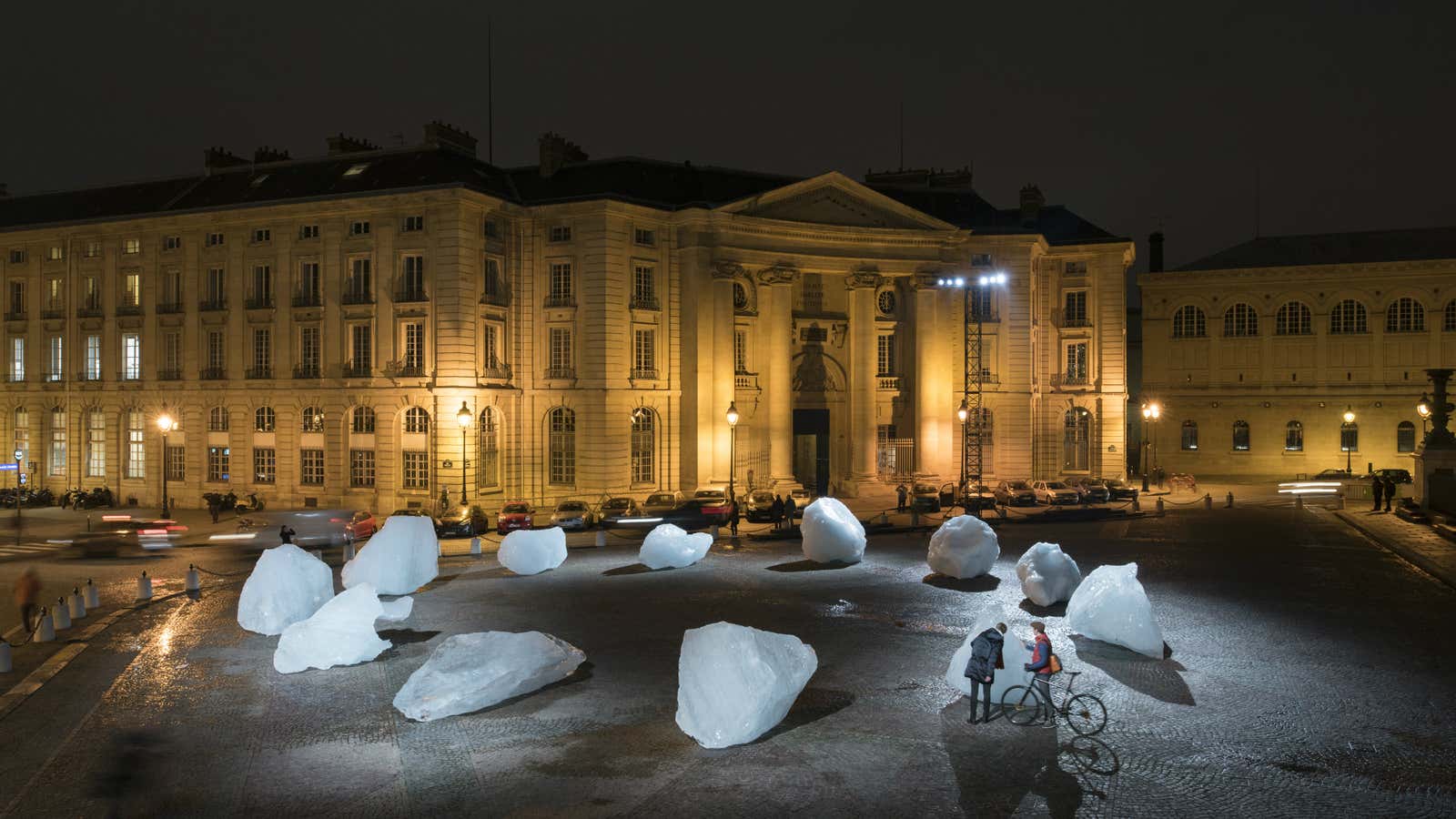At the UN Climate Summit (COP21) in Paris this week, Olafur Eliasson has found a way to break the ice.
To dramatize the alarming state of the planet’s temperature rise, the illustrious Danish-Icelandic artist corralled 80 tons of free-floating icebergs from Greenland and trucked them to the heart of the French capital where the international gathering of some 25,000 delegates from 195 countries is being held.
Ice Watch, as Eliasson’s art installation in front of the Panthéon is called, is comprised of twelve massive, melting ice boulders positioned in a circular arrangement to resemble a clock. Developed with geologist Minik Thorleif Rosing, Eliasson’s project is meant to be a chilling reminder that time is running out for meaningful action to arrest climate change. “I hope [this] work of art can actually bridge the gap between the data, the scientists, the politicians and heads of state and how normal people feel,” Eliasson told Reuters.

Many Parisians showed up for the unveiling on Dec. 3 to encounter the massive ice blocks that have separated from the Greenland ice sheet which is experiencing record melting—losing around 1,000 similar-sized chunks of ice per second throughout the year.
The massive blocks—some six-feet tall—were transported via six refrigerated shipping containers from Nuuk, Greenland to Denmark then delivered to Paris by truck. The carbon footprint for Ice Watch came to 30 tons carbon dioxide equivalent, which is equivalent to 30 people flying from Paris to Nuuk, Greenland, according to an independent audit report (pdf).

Eliasson—who is a whiz at creating grand spectacles—mounted a similar installation in Copenhagen last year to mark the publication of a UN report containing new scientific data about the state of climate change.
Depending on how warm it gets in Paris, Ice Watch is expected to last until the end of COP21 on Dec. 11. Any remaining ice will be donated to schools and community organizations to spread climate change education.

